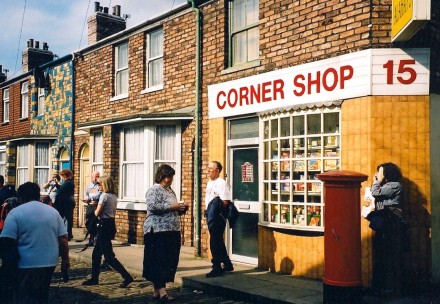
Labour already is a party of small business. We have thousands of members who are self-employed or who work in businesses that employ a few people, some struggling, some thriving. I’m the son of one of them. But compared to the party’s championing of the fate of public sector workers, Labour’s connection with small enterprise happens quietly and below the surface. In my own constituency, I could list at least 20 Labour party members who run small enterprises, but I can’t think of a single one who’s a GC delegate.
Party members go on marches against cuts in public sector pay, but we get nervous when asked to think about what might help corner shopkeepers or creative start-ups, cup-cake bakers and small engineering firms. It seems the Labour movement only feels comfortable with big organisations, whether in the state or private sector. The political tools our politicians are most comfortable with – making rules and offering tax incentives – only work on a massive scale. That needs to change.
Yesterday’s article here by Chuka Umunna and Rachel Reeves rightly note that the contribution of self-employed people isn’t properly recognised. Self-employment accounts for a third of new jobs recently, but the income of the self-employed has fallen faster than the rest of since 2010.
Their proposal is right – we need to find ways to properly count the income of people who work for themselves as well as for big organisation. It comes alongside the policies proposed by Labour’s small business taskforce: to introduce a network of regional banks, massively simplify the tax system, reform insolvency law, force Whitehall and encourage local government to procure from small business.
This is all good, but we need a deeper, more fundamental change in attitude not just a list of policies. Given the way our economy and society has changed, Labour should be the natural party of small business. It’ll only become that if it gets over its obsession with big power.
Labour was founded to organise ordinary working people to challenge the power of elites who try to monopolise power, and impoverish the rest of us in the process. That should still be our purpose.
But the structure of the elites we need to challenge has changed. In the early twentieth century, power and money in Britain were dispersed through the country far more widely than now, so local small business might figure as a powerful embodiment of ‘capital’. That’s no longer the case.
Over the last few decades have seen massive concentration of wealth and economic power in national and multinational corporations. And the numbers of people who are self-employed, or who run micro- or small businesses has hugely expanded. They – as much as the rest of us – are become the victims of banks which don’t lend, an economy where there’s no demand, a state which offers contracts onto to big companies but increases the regulatory burden on the self-employed.
The centralisation of political power is good for big corporations, who hire expensive lobbyists and have access throughout Whitehall. The more things are generic and standardised, the better big firms can compete. Small firms rely on difference and respond to the particularity of local markets – they often offer a much better service as a consequence. As a result, they only flourish where power is decentralised. The problems in one place are different from another.
Political decisions need to be made in institutions where traders can have a real voice, and – most importantly – a political culture that encourages politicians to listen and act.
Let me give an example. The lack of affordable premises is a big issue for small businesses in London, which are being killed by high property prices. It’s not an issue for firms in the North in the same way. It needs a political solution. That will rely on the existence of devolved political power in London (which we have) and have London led by politicians committed to practically solving London problem than their national political careers (which we don’t).
Local Labour parties can help change the political culture by starting the conversation – setting up small business fora, going door to door listening to local businesses, getting local business involved in party events. We could begin by involving small business party members better.
It’s just not about getting policies that back small business into our national manifesto – but finding a way to develop and implement the different political solutions needed in different places.
If we listened, we’d see big isn’t always beautiful.




More from LabourList
Nudification apps facilitate digital sexual assault – and they should be banned
Diane Abbott suspended from Labour after defending racism comments
Labour campaign groups join forces to call for reinstatement of MPs